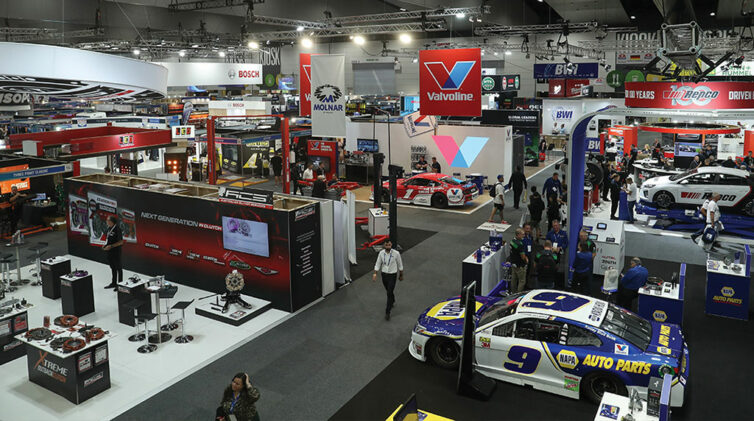The draft regulatory impact statement (RIS) released on November 11 sought to outline possible options to deal with the findings and recommendations of the final report of the Parliamentary Joint Committee Inquiry (PJC) into Franchising.
In a review of the RIS, the Victorian Automobile Chamber of Commerce (VACC) said that it, and the Motor Trades Association of Australia (MTAA), had separate consultations with the RIS taskforce earlier this year which resulted in “significant concerns over tenure, capital investment returns and conduct and behaviours of some car manufacturers”.
“While the draft RIS makes mention of issues such as a reasonable time to recoup returns on sizeable capital investment, it does not include specific solutions for issues raised by MTAA and members on franchised automotive retailing,” the VACC said.
“This work is being carried out separately by the industry department and VACC expects a revised regulatory impact statement or other work will be released shortly.”
The VACC said it had lobbied for more than 12 years for a separate code of conduct or, as an alternative, a significant schedule to be added to the Franchising Code of Conduct to properly deal with specific automotive franchise concerns.
“It is the view of VACC and MTAA that the latter is appearing more likely although government is yet to provide a formal position on the matter,” the VACC said.
The Australian Automotive Dealer Association (AADA) said there was a “clear imbalance in power between new-car dealers and the global manufacturers to which they are franchised”.
“RIS is another important step in achieving greater fairness in the relations between franchisees and franchisors,” said AADA CEO James Voortman.
He said the options put forward by the RIS were encouraging “but none is more important than the proposal to introduce an obligation on the franchisor to ensure franchisees receive a return on significant capital expenditure”.
“Franchised new-car dealers are required to invest large sums of capital in facilities and equipment, but all too often they are provided with shorter-term dealer agreements, making it almost impossible to recover one’s investment,” said Mr Voortman.
“The RIS has also provided options to limit the ability of franchisors to unilaterally vary agreements, expand the options for dispute resolution and clarify franchisees’ rights in terms of goodwill.”
He said the AADA’s highest priority was to better protect franchised new-car dealers in their relations with OEMs.
“The AADA will be pursuing this goal through various government processes,” he said, pointing to:
- The establishment of automotive-specific franchising regulations.
- Reform of the Franchising Code of Conduct.
- Class exemptions for franchisees to engage in collective bargaining.
- Reform of unfair contract terms.
- Reform of relations between suppliers and manufacturers in relation to the Australian Consumer Law.
The VACC and MTAA are to provide a submission on the Taskforce Draft RIS. The closing date for submissions is December 6, 2019, and both organisations said any input from members is welcomed by December 1, at the latest.
BACKGROUND:
In March, the Parliamentary Joint Committee on Corporations and Financial Services’ ‘Fairness in Franchising’ report found that the existing franchising code “has fallen short of its intended aim to strike an appropriate power balance between franchisors and franchisees”.
This report was made on the franchise industry as a whole, however recommended that “the department of the treasury and the department of jobs and small business give further consideration to identifying reforms that would support the fair handling of capital-intensive stock when franchise agreements between car manufacturers and new-car dealers are not renewed”.
The report said these would include, but are not limited to:
- Manufacturers being required to provide at least 12 months’ notice when not renewing a dealer agreement.
- Dealers not being compelled to upgrade the dealership after notice of non-renewal or termination has been given to the dealer.
- In the event of the non-renewal of a lease, mandating that the franchisor buy back at cost price all vehicle parts up to three years old, with the cost of any independent valuation of stock to be split evenly between the franchisor and franchisee.
The committee heard that car dealers “’have not benefited at all” from unfair contract terms (UCT) legislation because car dealers fall outside the small business thresholds to qualify.
The Australian Automotive Dealer Association (AADA) noted that return on investment for car dealers takes many years and often spans multiple contracts that include no security of tenure.
“This makes negotiating more balanced commercial terms extremely difficult for car dealers renewing contracts after making the initial investment,” the report stated.
“The AADA submitted that car dealers are therefore at greater risk of being subjected to contracts that include unfair contract terms.
“Many dealer agreements allow the local importer to unilaterally vary the terms of the dealer agreement.

“Unilateral variation is specifically prohibited by the unfair contract terms legislation, but such legislation does not apply to franchised new-car dealers.
“For these reasons, the AADA argued that the UCT legislation should be extended to franchised car dealer agreements.
“The ACCC supported the view that the thresholds for small business should be increased to allow for greater coverage of businesses such as car dealers, but has not concluded what the threshold should be increased to.”
The committee said that the AADA argued that the termination or non-renewal of a dealership agreement can lead to millions of dollars of goodwill being lost by dealers.
“The AADA argued for fair and reasonable compensation to be paid to franchised new-car dealers and franchisees at the end of the term,” the report stated.
“Similarly, the Motor Trades Association of Australia (MTAA) noted that dealers had been subject to sudden cessation of dealership agreements without regard for goodwill.
“The MTAA argued for the inclusion of goodwill as a value component of termination arrangements where the agreement is terminated without appropriate notice or good cause.
“The Victorian Automobile Chamber of Commerce argued that the franchising code should include provision for the payment of goodwill generated by the franchisee.”
Among the different industries referred to in evidence, automotive dealership franchise contracts were highlighted as a possible area of concern, in the context of restraint of trade clauses, the report said.
“The VACC submitted that almost 40 per cent of respondents to the Franchising Code and Oil Code of Conduct Survey reported that they were subject to the imposition of restraints of trade following the termination of their agreement,” the report said.

“VACC submitted that former franchisees have endured acute financial and emotional stresses resulting from the imposition of such restraints of trade upon termination of their agreement.
“Many current franchisees have also expressed that they do not know what would happen upon termination of their agreement, but remain fearful of reprisals as such.
“The fact that such restrictive trade practices by franchisors remain prevalent and are rarely challenged is testament to the high cost of legal action and the comparatively weaker economic position of the franchisee.
“However, the Federal Chamber of Automotive Industries (FCAI) pointed out that new-car automotive dealer agreements do not contain restraint of trade provisions.
“The FCAI argued that if a dealer ceases to represent a manufacturer for whatever reason, there is nothing preventing the dealer from representing another brand and operating from the same site immediately.
“Likewise, the Queensland Law Society submitted that automotive dealer agreements do not generally contain a restraint of trade (during or post-term) because the dealer may hold multiple dealerships across a number of brands.”
In closing, the committee said it acknowledged the concerns raised by franchisees that restraint of trade clauses in franchise agreements can negatively impact franchisees after exiting the franchise agreement, particularly in circumstances where the franchisee has developed experience or a specialisation in the industry of the franchise system.
“Franchisees can also be left in a precarious position if the franchised business fails, or is terminated or not renewed, while the franchisee is still committed to other costly arrangements such as retail lease agreements,” it said.
“In this situation, the franchisee may find that they are unable to run the type of business that the lease agreement prescribes for that particular location, either as an independent business or by joining a different franchise system.”
Its recommendation was for the treasury department and the department of jobs and small business give further consideration to identifying reforms that would support the fair handling of capital-intensive stock when franchise agreements between car manufacturers and new-car dealers are not renewed.
It also recommends that these departments ensure that multiple codes remain aligned over time, noting that options may include establishing a core franchising code that applies generally, with industry-specific aspects in schedules or sub-codes that apply in addition to the core franchising code for relevant industries.
By Neil Dowling














 Read More: Related articles
Read More: Related articles

